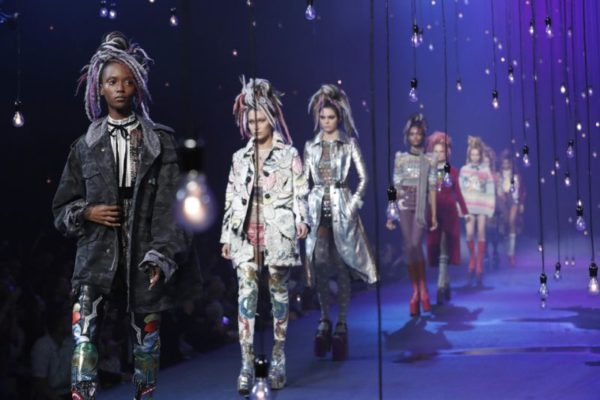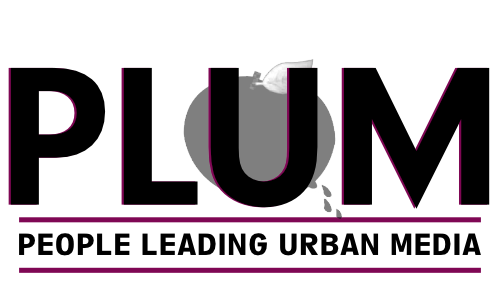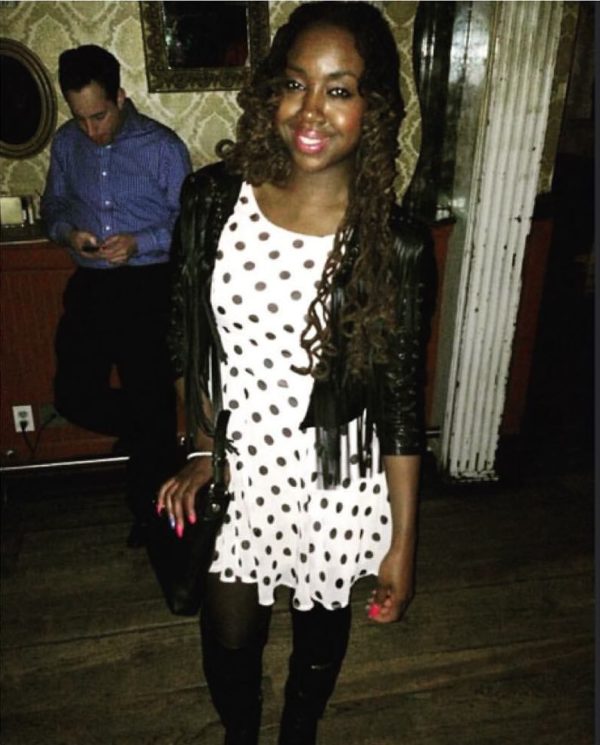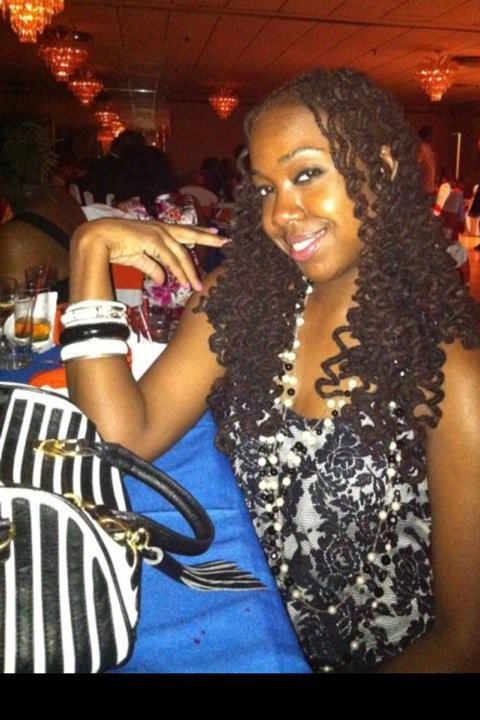Let’s Talk About Dreadlocks In The WorkPlace !
In a recent ruling by the Federal Court Of Appeals, the judge found that there is NO racial discrimination in hiring or firing an employee who wears their hair in dreadlocks. This case centers around, a black woman, Chastity Jones who was fired from a job after she’d been hired back in 2010.
Jones was overly excited to start her new job at Mobile Alabama, an insurance processing claims company. As with many corporate jobs, an employee handbook was provided and enclosed was the infamous ‘dress code’ that read ‘professional’ and ‘businesslike’. Assuming Jones wasn’t clear on what the full dress code entailed, a white human resources manager informed Jones that if she wanted the job it would be in her best interest to get rid of her ‘locs’ because they ‘tend to get messy’
The Result: Jones did not alter her hairstyle and the company rescinded her employment.
The EEOC issued a lawsuit on the behalf of Jones in 2013 claiming ‘racial discrimination’ in violation Title VII of the Civil Rights Act of 1964 , but the 11th circuit U.S. Court of Appeals agreed 3-0 with the lower courts decision and dismissed the lawsuit.
Judge Adalberto Jordan said,
” So, for example, discrimination on the basis of black hair texture (an immutable characteristic) is prohibited by Title VII, while adverse action on the basis of black hairstyle (a mutable choice) is not.”
Here’s my viewpoint of it all.
As a former ‘locafella’ and law major, I call BULL-S–t on this ruling. The judge statement is a complete paradox. The EEOC defense claims of ‘discrimination’ and or ‘racial bias’ would have not changed the verdict and here’s why.
Jones made it through to the HR stage [aka the final paperwork] which meant she passed the interview stage, and demonstrated that she was a qualified candidate with the right skills for the position of hire so her ‘skin color’ was not an issue.
It was Jones ‘hairstyle’ that was not ‘appealing’ and ‘acceptable’ to the company standards, and that’s where the ‘discrimination’ [based on her race] comes into play. For the learners out there, ‘words’ matter in the Judicial System and so does ‘cultural practices’ in the workplace.
In the corporate world, there is a certain dress code that is required and understood, and it demands no further explanation. In essence, words like Clean, Shaved, Groomed, Kempt, Formal, Tidy, Businesslike, and Professional are commonly used but they are also exclusive terms to those who choose to ‘FIT ‘ the cultural standards of those companies. Afterall, it is the company that is paying you. So if the boss [is dressed and fashioned in the model image of the company brand] , the same will be required of its employees.
I use to work for a top law firm in the New York City fifth avenue district area. Now, a law firm usually consists of lawyers, a receptionist [to greet clients and staff ] , a few paralegals and legal assistants who sit directly outside of their assigned lawyer’s office. I got the job through a recommendation from one of my college professor’s [connection ] but I also had to prove my typing skills, among other things to finally nail the job.
I was the fifth black person for hire in a predominantly jewish firm. My fellow kin folks at the firm was the mail clerk, the receptionist, and one legal assistant all of whom had been there years before I’d arrive.
The lawyers all wore the same black, dark blue, or pin stripe three piece suit attire, the women of jewish decent wore wigs – same attire, and women of African decent wore their natural hair in neatly straight hairstyles – same attire. The mail clerks donned low cut ceasar haircuts. Dreadlocks was my hairstyle of choice since an adolescent, but it was no longer in its ‘free formed’ stage [matted /messy looking] . I was in my early twenties and my locs were often ‘coiled’ and ‘curled’ using perm rods. So the full length of my locs were never revealed at work and they always remained at breast length [as seen above] .
Using my signature smile and big personality, I arrived at work everyday in my corporate attire eager to learn new case studies, and different variations of law in the usual button up, or round neck shirts, and formal pants /and or knee length skirts. I often kept a blazer at my desk in case big clients arrived because in addition to my role as a ‘paralegal’ I played the ‘meeting prep’ girl who set up the conference rooms with the per usual coffee, tea, and biscuits, and I also served as the ‘receptionist sub’ when necessary.
My attorney provided me with daily hair compliments, as did other co-workers, and clients who visited the office. Interestingly, the majority of those compliments came from non-black persons, and not once in my two year employment was I ever criticized about my hair, nor was I told by any of my employers prior and after to alter my hairstyle.

In hindsight, I am absolutely certain that if I had presented an ‘unkempt’ look or sported my locs in a free form style I wouldn’t have been hired. I am also certain, If I’d showed up to work with my hair wrapped in a turban and dressed differently than the rest of my work peers , I would’ve been given a verbal warning, and or the pink slip, because I was not conforming to the company dress policy.
I left the company following the death of my assigned attorney and I never returned to the law industry. I lost interest in the field I once held on a pedestal. Aside from the interest of law itself, I yearned for something better. While I was gaining approval at the work place, I was losing my identity. I washed, coiled, and curled my hair every two weeks to keep up my hair appearance but my ability to be creative, bring forth new ideas, and expand on my talents was null and void.
I had become a team player at work, but my sense of belonging was gone. It was business as usual. Same case studies over and over, same daily regimen of deposition hearings, research, affidavit signings, filings and billings. I was making great pay but to further my growth and receive bigger pay simply meant going to law school and becoming an attorney. It was my experience at this law firm that ultimately changed my life’s path.
Now, For The Paradox !
In his ruling, Judge Jones acknowledges that hair is culturally associated with race but to defend his verdict he contends that one’s hairstyle is a physical characteristic that can be changed. That ‘change’ that Judge Jones speaks of is in favor of what the ’employers’ deems as ‘acceptable’ in the work place similar to the dress code that is required in his courtroom.
“So for example, discrimination on the basis of black hair texture (an immutable /aka unchangeable characteristic ) is prohibited by Title VII, while (adverse action /aka employer decision to not hire Chasity Jones) on the basis of black hairstyle (her dreadlocks) , a mutable/ aka changeable choice is not discrimination.”
While this statement may be true for a judge or employer it is not a shared belief for most persons who wear dreadlocks.
For the people who practice ‘rastafarianism’ that is false, for people who believe in the freedom of self-expression that is false, for people who choose to wear their hair in free -form or dreadlocks that is a false statement because their decision to be expressive in their spiritual beliefs is demonstrated in their outwardly appearance. For Chastity Jones, her dreadlocks was just that.
Chastity Jones case is not the first of its kind but it is a teachable lesson for all. Many of us are taught and or given experiences that inform and shape our beliefs and values. Chastity Jones may not have been hired for the job she wanted, but she was given the foresight to choose a different path the minute she was confronted about her hair.
For Chastity, that new path would allow her to be in the comfort of her skin and basque in the glory of her self expression; wearing her dreadlocks proudly without shame and judgment. Chastity’s blessings was not in obtaining a job at Mobile Alabama, but for the right job /career that would come thereafter.

Interesting how this ruling came one day after fashion designer, Marc Jacobs made news headlines for showcasing white models in colorful dreadlocks during his NYFW show. Many critics called out Jacobs for ‘appropriating black culture’ and he immediately defended his actions saying: ” It’s Funny How You Don’t Criticize Women Of Color For Straightening Their Hair “; a physical characteristic he affirms is associated with the white race.
Jacobs insensitive remarks exposed his oblivion of black women and their decades of struggle and personal sacrifices made just to earn a job acceptance and move up the corporate ladder. One major sacrifice that is still passed down in generations of black women is that they must keep their hair as straight as possible, by any means possible to blend with societal beauty standards .
So for Chastity Jones, her real dreadlocks was threatening for the workplace, but Marc Jacobs models faux locs was praised as an inspiration of beautiful art. Jacobs later apologized for his comments but the damage was already done and the message was clear: Like it or not, it is the boss who calls the shots!
One Love PLUMS!


